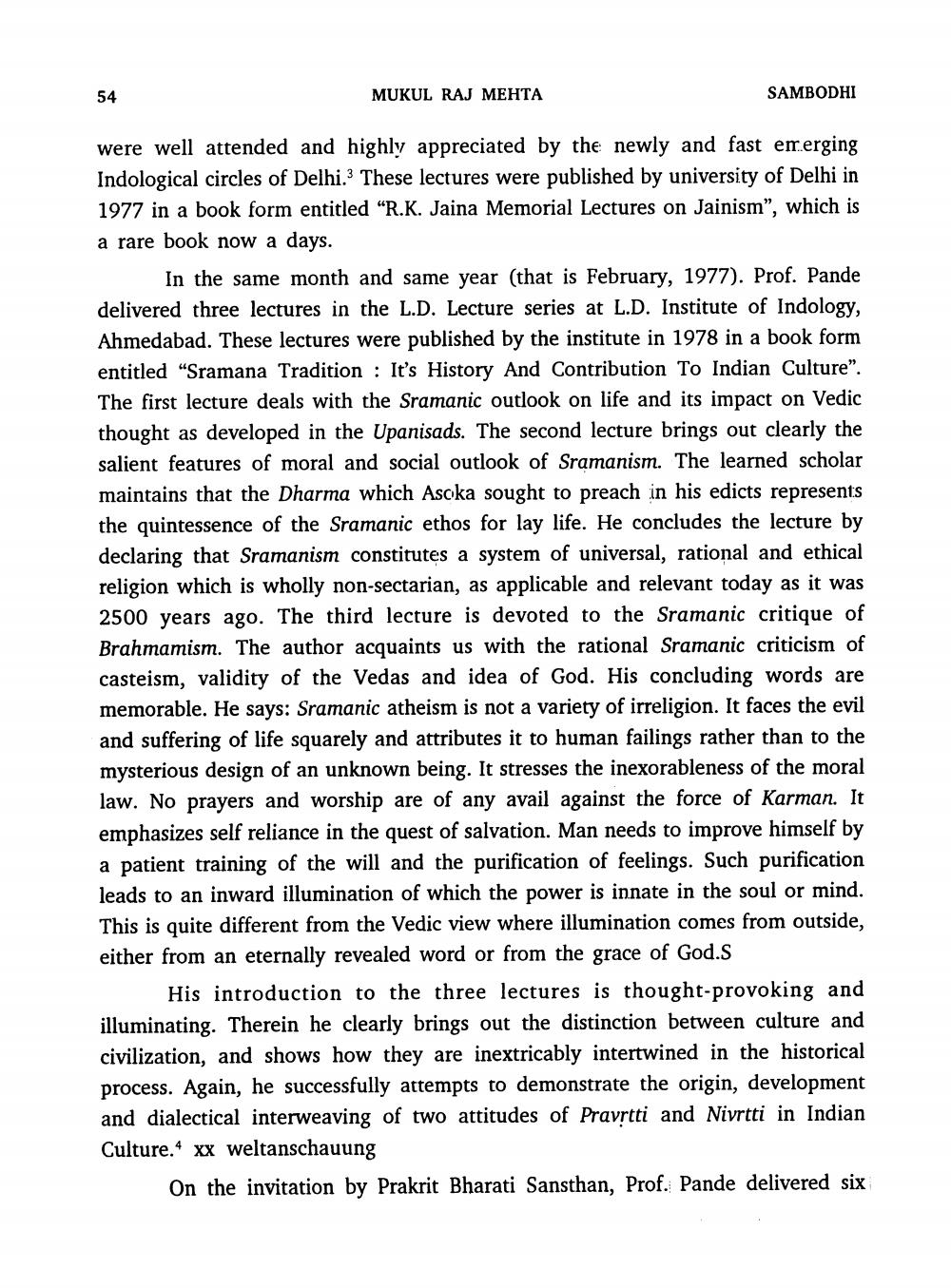________________
54
MUKUL RAJ MEHTA
SAMBODHI
were well attended and highly appreciated by the newly and fast emerging Indological circles of Delhi.These lectures were published by university of Delhi in 1977 in a book form entitled “R.K. Jaina Memorial Lectures on Jainism”, which is a rare book now a days.
In the same month and same year (that is February, 1977). Prof. Pande delivered three lectures in the L.D. Lecture series at L.D. Institute of Indology, Ahmedabad. These lectures were published by the institute in 1978 in a book form entitled "Sramana Tradition : It's History And Contribution To Indian Culture". The first lecture deals with the Sramanic outlook on life and its impact on Vedic thought as developed in the Upanisads. The second lecture brings out clearly the salient features of moral and social outlook of Sramanism. The learned scholar maintains that the Dharma which Asoka sought to preach in his edicts represents the quintessence of the Sramanic ethos for lay life. He concludes the lecture by declaring that Sramanism constitutes a system of universal, rational and ethical religion which is wholly non-sectarian, as applicable and relevant today as it was 2500 years ago. The third lecture is devoted to the Sramanic critique of Brahmamism. The author acquaints us with the rational Sramanic criticism of casteism, validity of the Vedas and idea of God. His concluding words are memorable. He says: Sramanic atheism is not a variety of irreligion. It faces the evil and suffering of life squarely and attributes it to human failings rather than to the mysterious design of an unknown being. It stresses the inexorableness of the moral law. No prayers and worship are of any avail against the force of Karman. It emphasizes self reliance in the quest of salvation. Man needs to improve himself by a patient training of the will and the purification of feelings. Such purification leads to an inward illumination of which the power is innate in the soul or mind. This is quite different from the Vedic view where illumination comes from outside, either from an eternally revealed word or from the grace of God.S
His introduction to the three lectures is thought-provoking and illuminating. Therein he clearly brings out the distinction between culture and civilization, and shows how they are inextricably intertwined in the historical process. Again, he successfully attempts to demonstrate the origin, development and dialectical interweaving of two attitudes of Pravrtti and Nivrtti in Indian Culture.4 xx weltanschauung
On the invitation by Prakrit Bharati Sansthan, Prof. Pande delivered six




